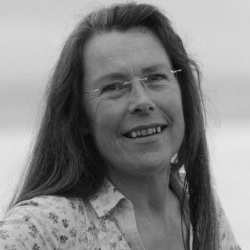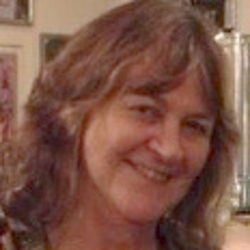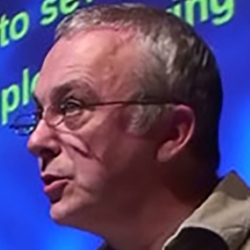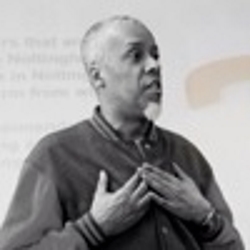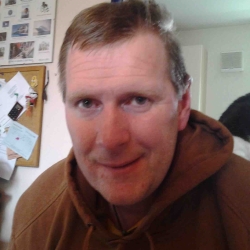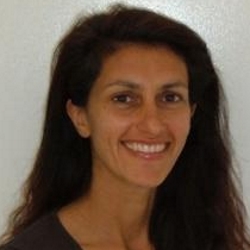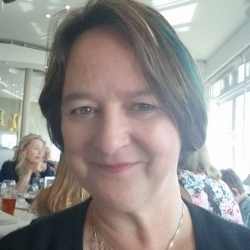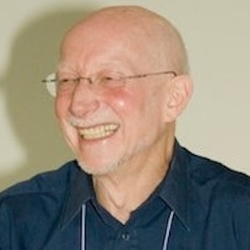Loading
Read MoreDancing with Rainbows: Throwing Perspective on a Person-centred Partnering Trans-identified and Trans-historied People – Tina Livingstone
Interest in sexual identity, sexual practices, and the transitioning of relationship has thus far focussed more on trans identified and trans-historied people themselves than their partners (Nemoto et al (1999); Docter and Fleming (2001); Smith et al (2002); Cuypere et al (2005); Hines (2006).
However, as long as being Trans’ remains socially stigmatised, those who engage in relationships with them frequently find themselves stigmatised by association – wherever their own sexual identity and orientation reside. This brings a unique layer of struggles for partners, beyond any issues within the relationship itself, including the silencing of celebration.
Read MoreDemedicalising Diversity: Celebrating, Not Pathologising, People With Different Lives – Pete Sanders
Pete Sanders’ half of this shared keynote will ask whether we can allow people to live lives very different from our own without making their lives and experiences into a diagnostic category? Is distress an illness or a natural (albeit sometimes terrifying) reaction to bad things happening in life? And can some people live happy fulfilled lives living with experiences that disturb and distress the rest of society?
In the world of mental health activism, we find Mad Matters, Mad Studies, and Mad Pride – movements following in the wake of Hearing Voices Network and the Paranoia Network. They ask the question: ‘Is the struggle to demedicalise diversity in experiencing a civil rights struggle?’ Pete Sanders says ‘yes’ and invites you to join in.
Read MoreCritical Race Theory, Reflexivity, and the Therapeutic Practitioner – Martin Glynn
Diversity includes all aspects of an individual’s intersectional identity; age, race, class, gender, sexuality, etc. Practitioners should therefore be encouraged to be cognizant of issues related to all of these dimensions of culture. Similarly, engaging diverse clients involves a continuous process of reflection and reflexivity.
‘Reflexivity’ involves examining one’s ‘conceptual baggage’; ‘assumptions’; and ‘preconceptions’, and how these affect professional decisions.
Practitioners must therefore reveal their total interaction with diverse communities by exposing their subjective experiences, both the personal and the political, to reduce the expression of unconscious bias.
Read MoreLife Rolls On: Adapting to Life After a Spinal Injury – Trev Baker
Trev will tell his story of the day that changed his life and the time spent in hospital. How getting involved with a charity called Back up enabled him to ski again and to experience sailing and quad biking which gave him confidence to pursue studies in sports coaching. Trev will talk about getting involved with a sports club called the SAND club which stands for see the ability not the disability and activities this has led to and working with younger adults with physical and behavioural issues in sport.
Read MoreThe Being of the White Therapist – Sheila Haugh & Colin Lago
In this presentation we will offer some reflection and ideas on this under explored arena of white therapist identity. We will discuss the notion of power and the concept of white as a norm. It is our hope to create an environment where we can all reflect on how the being of a white therapist can impact on us both personally and professionally.
Our vision for the structure of this keynote is to combine presentation for stimulus with an opportunity for reflection and thoughtfulness. We would like this keynote to provoke critical thought toward the systemic and personal implications of the being of the white therapist.
Read MoreRadical Relational Psychiatry: Towards Democracy of Mind and People – Karen Minikin
In this livestream workshop I bring together the Radical from our past with contemporary (Relational) Transactional Analysis. My motivation in integrating these two approaches is that both speak to my personal philosophy. From radical psychiatry, I honor our roots in reforming thinking and practice. Relational TA is a different reminder of our roots and integrates contemporary thinking from the broad relational field, which has further informed our theories and practices.
Read MoreCyber Culture: Working and Living in a Digital Society – Kate Anthony
Dr Kate Anthony, FBACP, will look at why people turn to digital environments to seek help with their particular issues.
She will look at the central themes of how people interact online, such as: issues of shame & embarrassment; inability to seek help elsewhere; the Disinhibition Effect (both the positive and negative effects); a sense of belonging to a community; and for when in crisis.
Read MoreWAPCEPC – Relationship, Empathy, and Cultural Differences – Iguaraya Morales
As a result of researching on the Venezuelan episteme (along with Dr. Alejandro Moreno), it was found that Venezuelans perceive themselves as “in-relationship”; they do not conceive themselves as individuals.
In consequence, as a Clinical Psychologist, I started thinking about the implications of these findings on the therapeutic relationship and the way empathy is established.
Rogers considered empathy and relationship concepts from a modern paradigm where the person is an individual self; but Venezuelan therapists need to overcome the phenomenology and take into account what has been lived and shared in the same life-world and hermeneutic horizon.
Read MorePart 2 – On Fully Meeting the ‘Other’: The Challenge of Diversity – Colin Lago
Loading
Read MorePart 1 – On Fully Meeting the ‘Other’: The Challenge of Diversity – Colin Lago
Colin addressed the meaning and challenges of diversity as it applies to users and professionals within the caring professions. Sadly, the consistent patterns of discrimination and oppression are regularly reported in research into different ‘caring’ work environments within the arena of diversity. Colin explored such questions as: who is different and divers from whom? How and why does ‘difference’ impact upon helping relationships? What can professionals do to achieve change? Various ideas for training, development and professional practice will be introduced in the lecture.
Read MoreSocial Justice and Advocacy: What Counselors-in-training Need to Know – Shana Goggins & Panagiotis Markopoulos
Suggested Reference Goggins S & Markopoulos P (2012). Social Justice and Advocacy: What Counselors-in-training Need to Know. [ONLINE] Available at: https://www.onlinevents.co.uk/social-justice-and-advocacy-what-counselors-in-training-need-to-know-shana-goggins-panagiotis-markopoulos/. [Last Accessed 13/09/12]….
Read MoreSocial Justice Advocacy in the School and Clinical Settings – Heather Smith, Kristi Taraschke & Kelsey George
Suggested Reference George K, Smith H & Taraschke K (2012). Social Justice Advocacy in the School and Clinical Settings. [ONLINE] Available at: https://www.onlinevents.co.uk/social-justice-advocacy-in-the-school-and-clinical-settings-heather-smith-kristi-taraschke-kelsey-george/. [Last…
Read More